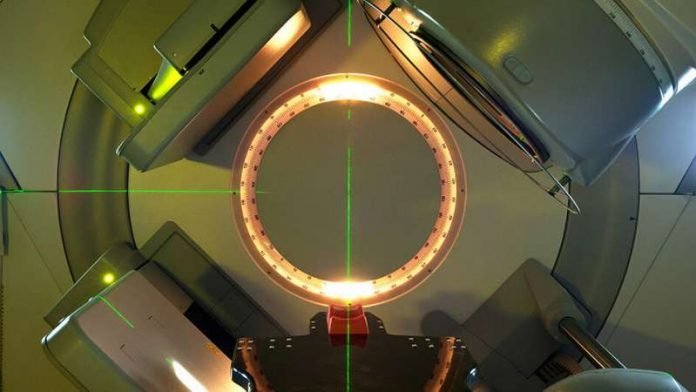
In a new study, researchers found advanced radiotherapy technology can safely deliver curative treatment for prostate cancer patients in as few as five sessions, with only minimal side effects.
In the study, the team compared the long-term bowel and bladder side effects for prostate cancer patients receiving stereotactic body radiotherapy (SBRT) to those receiving standard radiotherapy treatment.
They found that two years after treatment, nearly 90% of all patients on the trial experienced only minor side effects.
99% were free of severe side effects, suggesting that shortened treatment can be given without the risk of long-term higher toxicity.
SBRT, which can be delivered on a CyberKnife or standard radiotherapy machines, allows clinicians to target tumors to sub-millimeter precision.
It delivers five high doses of radiation to patients over one to two weeks, compared to standard radiotherapy (Intensity-modulated radiation therapy, or IMRT), which delivers more moderate doses over a much longer period of time—usually, around 20 sessions, which can take up to one month.
In the study, 874 patients with prostate cancer were randomized into two groups. 441 patients were allocated the current standard of care, receiving standard radiotherapy for either 39 doses over seven or eight weeks, or 20 doses over four weeks.
433 patients were allocated SBRT, receiving five doses of treatment over one or two weeks.
For both groups of patients, 90 percent of whom had intermediate-risk prostate cancer, this was intended to be curative with no further treatment planned.
Researchers found that patients in both groups had similar levels of side effects two years after treatment, which were very low overall.
There were no differences between the two groups with regards to the bowel and rectal side effects but a small difference with urinary toxicity.
Results suggested that about one in nine men receiving the SBRT radiotherapy over five sessions will get a moderate bladder side effect two years after treatment, compared to about one in 17 men receiving standard radiotherapy.
Bladder side effects experienced by patients included urinary frequency and urgency.
If you care about prostate cancer, please read studies about this depression drug may help fight prostate cancer and findings of why some prostate cancers are more aggressive.
For more information about prostate cancer, please see recent studies about new non-invasive treatment for men with enlarged prostate and results showing that a new ultrasound therapy that can destroy prostate cancer.
The study was presented at the European Society for Radiotherapy and Oncology (ESTRO) Congress. One author of the study is Dr. Nicholas van As.
Copyright © 2021 Knowridge Science Report. All rights reserved.



